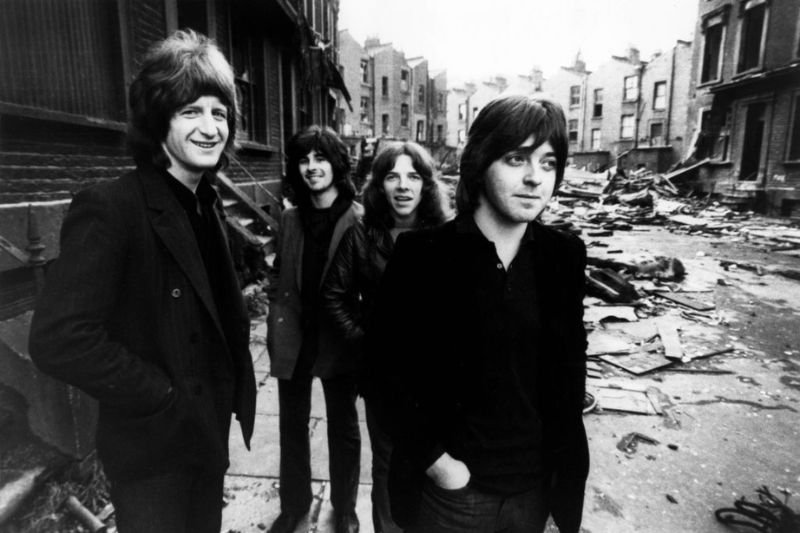Joey Molland died in March, at the age of 77.
That name may mean absolutely nothing to you, but the fact he lived that long is no mean feat. Molland was the last remaining member of Badfinger, a Welsh group that was the first band signed to The Beatles’ Apple label. Many believe they should have been the natural successors to the Fab Four.

They had two great songwriters in guitarist Pete Ham and bass player Tom Evans, and along with lead guitarist Joey Molland and drummer Mike Gibbins, they were in-demand players on others’ records, and one of the major influences on the entire power pop genre.
You may still be scratching your head, saying ‘Whatever you say, Granddad, but I’ve never even heard of them.’
But you’ve probably heard their songs. Did you watch Breaking Bad? Remember how choked up you got in that final scene? The song playing over Walter White’s last moments, Baby Blue, was by Badfinger.
If you grew up listening to the radio in the early ’70s, you’d know the Harry Nilsson hit Without You. And if you grew up listening to the radio in the mid-’90s, you’ll remember Mariah Carey having a hit with the same song. Neither of them wrote it. Badfinger did.
Then there’s No Matter What, Day After Day (with George Harrison on slide guitar and Leon Russell on piano), and their very first single, Come And Get It, which was written by Paul McCartney.
So many memorable songs. A number of hit singles. And an incredible legacy. The various members were also all over the early ’70s solo work of various Beatles, including George Harrison’s All Things Must Pass album and his Concert For Bangladesh, John Lennon’s Imagine album, and Ringo Starr’s single, It Don’t Come Easy.
'Instead, the story of Badfinger is forever laced with tragedy. And their songs, so many of them about loneliness, longing and lost opportunities, only resonate more strongly because of that.'
And yet, they’re considered a cult band. The reason for that is they had the worst luck of possibly any group. And that bad luck was mainly due to a man named Stan Polley.
Polley was their manager, and his financial mismanagement of his acts would become legendary. There were even rumours that he was a one-time bagman for the mafia.
Music history is littered with tales of artists being screwed over by unscrupulous managers and labels, but Polley stands out as a master of deceit and greed in a crowded field. There were terrible contracts, restrictive clauses, dodgy deals, disappearing funds, disproportionate cuts of profits (always heavily in his favour) and multiple lawsuits.
It’s estimated Badfinger sold around 14 million records. And yet they were broke. Stan Polley was not.
On the night of April 23, 1975, Ham wrote a suicide note to his wife, who was pregnant. He added at the end: ‘PS. Stan Polley is a soulless bastard. I will take him with me.’ He killed himself by hanging. He was 27.
A decade later, on the morning of November 19, 1983, after Evans and Molland got into a heated argument on the phone about band finances, Evans also took his life by hanging. He was 36.
On October 4, 2005, drummer Mike Gibbins died in his sleep from a brain aneurysm at the age of 56.
Which left Molland as the last member standing, until his death in March.
Sadly, arguments and lawsuits continued throughout the band’s life, even amongst the surviving members and the estates of members who died. But the songs remain. It’s difficult to listen to their version of Without You without thinking of the torment of Pete Ham, who suffered from mental illness and was then pushed to the brink and felt totally alone, broke and bereft at the end of his short life, 50 years ago last month.
Of course, the mystique around Ham is only amplified by the fact that he became a member of ‘the 27 Club’, a tragic list of musicians who checked out at that age, including Jimi Hendrix, Janis Joplin, Brian Jones, Jim Morrison, Kurt Cobain and Amy Winehouse.
We naturally tend to mythologise those who burned brightly and whose flame was snuffed out too young. There’s always that question of ‘What if?’
If a sliding door moment had occurred and they’d chosen a different manager, perhaps things would have been different for Badfinger. Perhaps they would have continued to make music together and develop into one of pop’s most significant and enduring acts. Perhaps they all would have lived into old age.
Instead, the story of Badfinger is forever laced with tragedy. And their songs, so many of them about loneliness, longing and lost opportunities, only resonate more strongly because of that.
Barry Divola is an author, musician and journalist who writes regularly for The Sydney Morning Herald and The Age. His latest book is the novel Driving Stevie Fracasso. Follow his writing at: authory.com/BarryDivola
Main image: Badfinger; Posed group portrait L-R Pete Ham, Tommy Evans, Mike Gibbons, Joey Molland. (Photo by RB/Redferns/Getty Images)